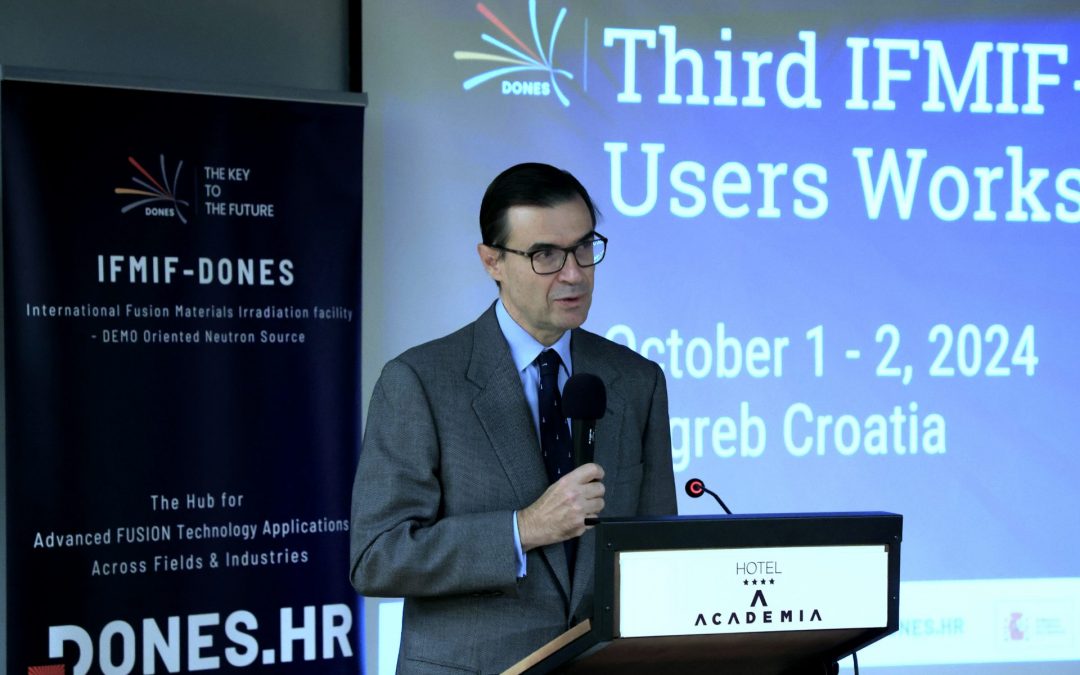ZAGREB – The third workshop of the Dones Project, the largest European venture in the field of fusion energy, which is organized by leading Spanish and Croatian scientific institutes gathering international fusion experts and engineers, began on Tuesday in Zagreb.
The director of the Ruđer Bošković Institute (IRB) David M. Smith said that IRB has the honor of playing a key role in coordinating fusion research in Croatia, on a project that in 2018 was declared a scientific infrastructure of strategic importance for the European Union.
He emphasizes that the project goes beyond the scope of energy itself and encompasses biomedicine, isotope production, nuclear physics, materials science, and astrophysics. It also extends to industrial applications such as neutron tomography, handling liquid metals, advanced robotics, and sensor systems.
The Head of the European Commission Representation in Croatia, Zrinka Ujević, said that the project is important in efforts to achieve a sustainable low-carbon future and that it is proof of the potential of European cooperation, which goes beyond European borders.
The Spanish Ambassador to Croatia, Juan González-Barba, congratulated the cooperation leaders, physicist Tonči Tadić from the Ruđer Bošković Institute, and the director of the Ifmif-Dones consortium, Ángel Ibarra Sánchez, for developing a top-level scientific collaboration that has become the most promising field of bilateral cooperation between the two countries.
The Dones Project is the largest European venture in the field of fusion energy, crucial for the development of future fusion power plants, in which Croatia, together with Spain, plays a key role.
At the initiative of Croatia and Spain, in 2018 it was declared a scientific infrastructure of strategic importance for the EU within the framework of the European Strategic Forum for Research Infrastructures (ESFRI). This gives the project an advantage in funding from European and national funds, but it also commits to organizing its own User Network at the EU level. (October 1, 2024)
 go to the original language article
go to the original language article
